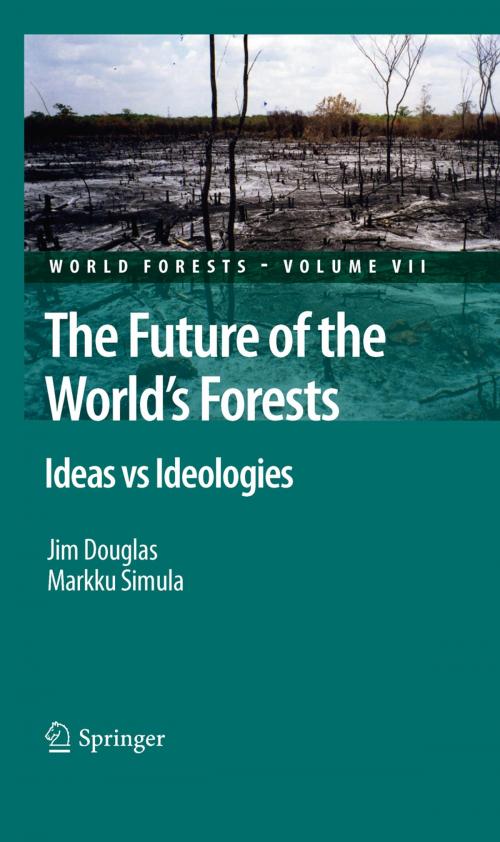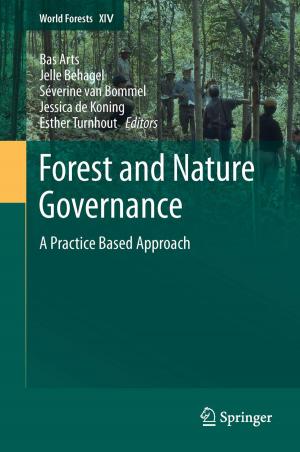The Future of the World's Forests
Ideas vs Ideologies
Nonfiction, Science & Nature, Technology, Environmental, Agriculture & Animal Husbandry| Author: | Jim Douglas, Markku Simula | ISBN: | 9789048195824 |
| Publisher: | Springer Netherlands | Publication: | September 5, 2010 |
| Imprint: | Springer | Language: | English |
| Author: | Jim Douglas, Markku Simula |
| ISBN: | 9789048195824 |
| Publisher: | Springer Netherlands |
| Publication: | September 5, 2010 |
| Imprint: | Springer |
| Language: | English |
At the landmark 1992 United Nations Conference on Environment and Development (Earth Summit), solemn resolutions were made both to protect the world’s biodiversity and to co-operate on managing natural forests in a sustainable and ecologically responsible way. If anything, given recent developments in issues such as climate change and poverty, the problem of protecting and sustaining forests should logically have become more important globally. Yet public interest in, and development support for, forest activities have declined and rates of forest loss remain stubbornly high. Why has this happened? This book seeks answers to this question. It examines the often dysfunctional relationships between various members of the international forest constituency, which have so often prevented the formation of consensus. It also explores the tendency to pursue technical and politically convenient ‘fixes’ focused on the internal workings of the forest sector, while ignoring the overwhelming influence of external forces on the fate of forests. The result, all too often, has been programs which benefit a few powerful players and fail to provide real solutions. The book provides a new examination of and perspective on the international forest policy debate. It clarifies the reasons for global forest conflicts and provides insight for future policy development. Including examples from both the developed and developing world, it provides an invaluable resource for researchers and graduate students in forest policy and international relations, as well as a useful reference for policymakers and professionals in the forest sector, the development community and conservationists. With significant global attention now focused on reducing carbon emissions from deforestation and forest degradation (REDD), the authors examine the promise and the potential problems that apply to this initiative.
At the landmark 1992 United Nations Conference on Environment and Development (Earth Summit), solemn resolutions were made both to protect the world’s biodiversity and to co-operate on managing natural forests in a sustainable and ecologically responsible way. If anything, given recent developments in issues such as climate change and poverty, the problem of protecting and sustaining forests should logically have become more important globally. Yet public interest in, and development support for, forest activities have declined and rates of forest loss remain stubbornly high. Why has this happened? This book seeks answers to this question. It examines the often dysfunctional relationships between various members of the international forest constituency, which have so often prevented the formation of consensus. It also explores the tendency to pursue technical and politically convenient ‘fixes’ focused on the internal workings of the forest sector, while ignoring the overwhelming influence of external forces on the fate of forests. The result, all too often, has been programs which benefit a few powerful players and fail to provide real solutions. The book provides a new examination of and perspective on the international forest policy debate. It clarifies the reasons for global forest conflicts and provides insight for future policy development. Including examples from both the developed and developing world, it provides an invaluable resource for researchers and graduate students in forest policy and international relations, as well as a useful reference for policymakers and professionals in the forest sector, the development community and conservationists. With significant global attention now focused on reducing carbon emissions from deforestation and forest degradation (REDD), the authors examine the promise and the potential problems that apply to this initiative.















